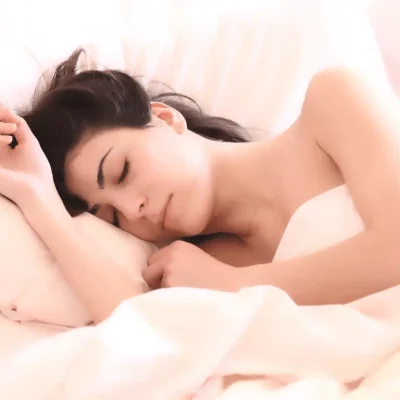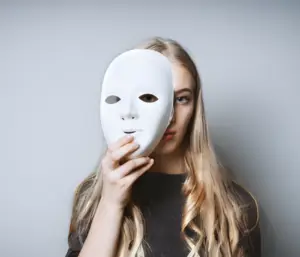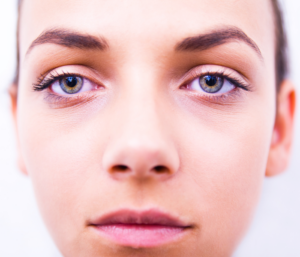Why Do We Need Sleep?
We generally think of sleep as a time where our body begins to refuel and recharge energy in order to function. While this is true, sleep is also important in processing information, restoring thoughts, and strengthening our minds. Our brains are continually taking in new information. When we are asleep, you could say that our brains are “safekeeping” all that it has learned. Just like eating, drinking, and breathing, sleep is critically important for our optimal health.
Different Sleep Stages
There are four stages that we experience when we sleep. The first three stages are characterized as Non-REM (NREM) sleep, and the last stage is REM sleep. The lightest sleep stage is known as Stage 1. During this stage, brain wave activity slows. Sleep in this stage is known as a “drowsy” sleep, and it because it is so light, we can be easily awakened and aroused. Slow eye movements occur and some people may experience a “falling” sensation when drifting in and out of this stage. During Stage 2, there are no more eye movements and you may no longer be as easily awakened. Heart rate begins to slow and body temperature begins to decrease. Deep NREM sleep occurs during Stage 3. Since it is one of the stages where sleep is at its deepest, it is most difficult to awaken someone during this stage. A person experiencing sleep deprivation will spend a lengthy amount of time in this stage. When REM sleep begins, breathing becomes more rapid, heart rate increases and blood pressure rises.
Mental Health and Sleep
There is an extensive overlap between sleep disturbances and mental health disorders. Chronic sleep disturbances can affect50-80% of U.S. adults in a psychiatric practice, compared with 10-18% of adults in a general population. Many clients seeking treatment for a mental health disorder will list insomnia as a symptom. Sleep disturbances can exacerbate your mental health disorders, or vice versa. It is important to note that a common side effect of any medication you are prescribed can cause excessive sleepiness or the inability to fall asleep as well. Becoming aware of your sleeping patterns and seeking treatment for a mental health disorder may increase your mood throughout the day and overall leave a positive impact on your health.
Sleep and Anxiety: Having an increased state of anxiety can keep your nervous system alert, which disrupts relaxation and makes it difficult to fall asleep. Just like cortisol is responsible for stress, melatonin is responsible for sleep. When we are stressed, our brain finds it difficult to produce melatonin.
Sleep and Depression: Research has shown that having insomnia can increase the risk of developing depression. A person with depression may spend a longer amount of time falling asleep and spend less time asleep overall. If they have trouble falling and staying asleep, they may not be experiencing much time in the deep sleep experienced in Stage 3, and they are not feeling well-rested.
Sleep and ADHD: Individuals diagnosed with ADHD tend to experience difficulty falling asleep, shorter sleep durations, and restlessness. Symptoms of ADHD also tend to mimic sleep disturbances which can make it difficult to tell the two apart.
Sleep and Schizophrenia: Those diagnosed with schizophrenia are more likely to have random periods of sleep throughout the day/night rather than sleeping for a continuous amount of time at night. Scientists believe these irregular sleeping habits are caused by the lack of melatonin being released and altered circadian rhythm.
Sleep and Personality Disorders: A common sleep disturbance seen in personality disorders is shortened REM latency. REM sleep correlates with cognition, memory, and mood stabilization. When REM sleep is disrupted, the severity of a pre-existing personality disorder may increase.
Sleep and Eating Disorders: Weight loss, malnutrition, and starvation are all important factors that can affect sleep quality. Sleep apnea is a common sleep disorder that can be associated with weight, body-mass index, and eating habits. The interruption of breathing during sleep can cause an individual to experience sleep in smaller increments.
Sleep and OCD: Many diagnosed with obsessive compulsive disorder may feel an overwhelming sense of danger which can impact falling asleep and the quality of sleep they receive. The time that they fall asleep may be later than anticipated because they can be caught up in routines or they are fixating on their own thoughts.
Sleep and Substance Use Disorders: There is a link between sleep apnea and alcohol consumption as well. Alcohol has the ability to relax the muscles in the throat which obstructs breathing. Withdrawal symptoms of opioid addiction can be linked to restless leg syndrome and insomnia, making it incredibly difficult to function during the day after a sleepless night.
Sleep and Bipolar Disorders: Individuals will experience a lower quality of sleep between high (mania) and low (depression) points of a bipolar disorder. One of the earliest signs of mania seen in bipolar disorder is lack of sleep. They will feel energized and have a decreased need for sleep. Once the person begins the depression stage of bipolar, they may start to sleep excessively.
How to Increase Quality of Sleep
Lifestyle Changes: Caffeine, nicotine, and alcohol can be considered one of the biggest contributors to sleep disturbances. While many will find giving up these substances to be nearly impossible, avoiding them closer to your bedtime can still have an affect.
Would you have guessed that the time in which you sleep could potentially have an impact on your health? Studies have shown that people who work the “graveyard” shift are more likely to be depressed! One reason is related to the possible risk of vitamin D deficiency — since you are asleep when the sun is out, you aren’t receiving the proper sunlight needed in order for your skin to make vitamin D from cholesterol. Another reason, according to David Ballard, a program director at the American Psychological Association, is that “you’re fighting against your body’s natural circadian rhythms.” Working the night shift may cause restrictions from socializing with friends and family and potentially an unhealthy diet.
CBD Oil: Cannabidiol (CBD) communicates with our body’s endocannabinoid system, in helping us sustain a sense of balance or stability known as homeostasis. In a study involving 72 participants (47 with anxiety and 25 with poor sleep), each were given a capsule of 25 milligrams of CBD. This was distributed to them once a day for one month. At the end of the study, 79.2 percent reported lower anxiety levels and 66.7 percent reported an increase in sleep quality. Chronic pain is another common reason many people experience sleep disturbances, and CBD has been beneficial in this area as well. In a 2018 article it is reported that by reducing pain, CBD can improve sleep.
Physical Activity: While exercise is essential for our physical heath, it has a strong impact on our mental health, too. Aerobic exercise can guide in helping people fall asleep faster and stay asleep longer without disturbances.
Sleep Hygiene: Going to bed and waking up at the same time every day is referred to as sleep hygiene. Establishing a routine for your mind and body can potentially program it to sleep better. Staying awake longer than you are used to, but avoiding sleep deprivation, may induce restful sleep. Keeping the room free of distractions can also increase how fast you fall asleep.
Relaxation Techniques: Most of the difficulties people have regarding sleep issues are anxieties and racing thoughts. In order to alleviate these feelings, relaxation techniques are highly recommended and useful. These include meditation, deep breathing exercises, progressive muscle relaxation, and listening to binaural beats. A study from the JAMA Internal Medicine consisted of 49 middle-aged and older individuals who reported sleep disturbances. Half of them participated in a mindfulness awareness program that taught them meditation and exercises created to guide them with focusing on their experiences, thoughts, and emotions. The other half participated in a sleep education class that informed them of ways to improve sleeping habits. Each group met for two hours, once a week for six weeks. The group that participated in the mindfulness awareness program reported that they experienced less insomnia, fatigue, and depression at the end of the study. Former Harvard professor Dr. Herbert Benson coined the term “relaxation response” in the 1970s. He describes this as a deep physiological shift in the body that’s the opposite of the stress response. This method is known to ease symptoms of depression, pain, and high blood pressure. As a result, many will experience restful sleep.
Binaural beats are another type of relaxation technique that promotes better sleep quality. It is a creation of two slightly different sound frequencies that creates a perception of a new frequency tone. It is believed to be effective by using headphones, listening to one frequency in one ear, and the other frequency in the other ear. When your brain hears the combination of both frequencies, it is able to tune to the new frequency. These frequencies are relatively low, which can trigger slower brainwave activity, resulting in feeling relaxed and a decrease in anxiety. As it has been previously mentioned, the less stressed you are, the more likely you are to fall asleep faster, stay asleep longer, and feel more rested when you awaken.
Feel free to visit our store if you are interested in trying our selection of high quality CBD oil. If you feel that you may have a mental illness that is impairing your ability to get restful sleep, please contact our office at (412)-532-1249 to see how we can help.
—
About Makin Wellness
Founded in 2017 , Makin Wellness is Pittsburgh’s premier therapy & coaching centers located in Downtown Pittsburgh and Downtown New Kensington. The company’s mission is to help people heal and become happy again. Makin Wellness specializes in depression, anxiety, addiction, trauma, medical marijuana assisted treatment and relationship counseling.








